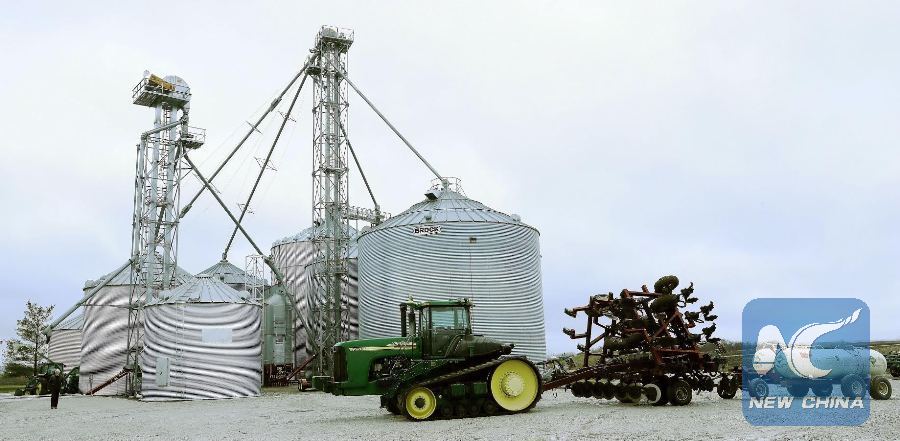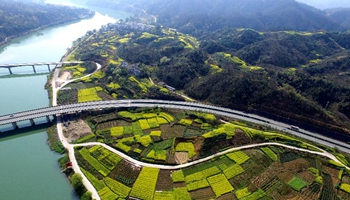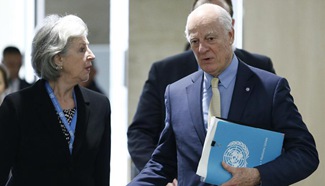
Photo taken on March 24, 2017 shows the Kimberley Farms in Des Moines, Iowa, the United States. (Xinhua/Wang Ping)
By Xu Xingtang, Xu Jing
CHICAGO, March 29 (Xinhua) -- Maintaining a good and normal trade relationship between China and the United States will benefit both countries, Iowa officials have told Xinhua in separate, exclusive interviews.
"It's clearly a two-way trade. From an agriculture perspective, China is important to us," said Kirk Leeds, chief executive officer of Iowa Soybean Association.
Iowa, a major agricultural state located in the U.S. Midwest, is the second largest soybean producer among U.S. states in 2016, and exports 60 percent of its soybean production; while China buys about 50 to 60 percent of the world's soybean export, undoubtedly the largest customer on the world's soybean market.
Iowa knotted sister state relationship with China's Hebei Province in 1983. Since then, the state has interacted extensively with China in the fields of trade, education, culture and visiting.
"China buys a lot U.S. soybean," Kirk told Xinhua. If China does not buy soybean...and more soybean stations will have to pull down the prices, "there will be excessive soybeans in the market, and that will affect our farmers," Kirk said.
"Soybean industry in Iowa recognizes that China is a major customer. Any disruptions in trade relationship have serious consequences for American agriculture and soybean industry specifically," Kirk said.
Vice Versa, "China needs U.S. soybeans," said Kirk, as the quality and the delivery are better here. "Any (trade) disruptions will be unfortunate, neither of us wins in trade war."
Kenneth Quinn, president of the World Food Prize Foundation, holds similar view, saying "trade is absolutely critical, particularly agriculture and food trade."
Two soybean contracts have been signed between China and the U.S. in the last five years in the building of the World Food Prize Foundation headquartered in Des Moines, capital of Iowa, one for 4 billion U.S. dollars and another for 2 billion U.S. dollars.
Kenneth reminded people of the Smoot-Hawley tariff in the 1930s. The tariff was originally meant to promote jobs and counter the effects of the depression by imposing big taxes on imports into the U.S., but it depressed global trade and made the depression worse. "Anything that would impact trade will only backfire and have a net effect depressing the American economy," Kenneth said.
Rick Kimberley, president of Kimberley Farms Inc., believed that President Trump knows how important agriculture is to both U.S. and China. "That would much hurt Iowa and the United States without trade of agricultural products," Kimberley said in an interview with Xinhua.
"I think (if) there's a little give and take on both sides..., we might even have better trade together," Kimberley said.
"Iowa as a state, we benefit from trade because of our agricultural products, we understand how important it is, even more than some other states that maybe don't sell as much to China," Dan Stein, vice president of CBI Bank and Trust, said.
Hopkins, former mayor of Muscatine, said that China is a big player in world trade and "I don't think that our President Trump will do anything to disrupt that."










